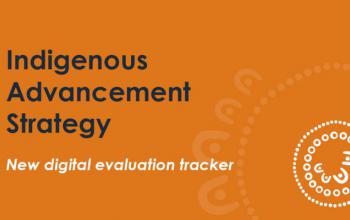Evaluations and Evidence
Evidence
The work of the National Indigenous Australians Agency is underpinned by effective data and evidence. The NIAA provides advice and information to the Minister for Indigenous Australians, the Australian Government, State and Territory governments, organisations, providers and communities to inform policy development, programs and monitoring of the effectiveness of programs for Aboriginal and Torres Strait Islander peoples.
The NIAA provides statistical analysis of data, evidence and research to inform policy and programs through:
- The Aboriginal and Torres Strait Islander Health Performance Framework report
- Input into a range of government reviews and reports that monitor progress and the effectiveness of programs for Aboriginal and Torres Strait Islander people (e.g. the Prime Minister’s annual COAG Closing the Gap report)
- Monitoring trends in outcomes for Aboriginal and Torres Strait Islander people.
The NIAA is also considering the broader processes around data collection, availability and use.
Evaluation
Evaluation helps us to gain an understanding of what works and what doesn't, for whom and why. This kind of knowledge can help us to learn and improve what we do, supporting decision-making with the best available evidence.
Evaluation is integral to continual improvement. It is not a one-off, or 'tick the box' exercise. Evaluation supports evidence-informed policy development, public accountability, learning and performance reporting. Evaluation needs to be planned across the lifecycle of a program, from the very start.
The NIAA promotes and supports a culture that focusses on evaluation and performance improvement. We do this by:
- Providing information, support and advice that embeds the functions of evidence and evaluation into policy and program design cycles.
- Ensuring that monitoring and evaluation priorities we support are well designed and delivered in collaboration with Indigenous Australians.
Evaluation Framework
The Evaluation Framework guides the conduct and development of a stronger approach to evaluation of programs and activities under the Indigenous Advancement Strategy. The goals of the Framework are to:
- Generate high quality evidence that is used to inform decision making.
- Strengthen Indigenous leadership in evaluation.
- Build capability by fostering a collaborative culture of evaluative thinking and continuous learning.
- Emphasise collaboration and ethical ways of doing high quality evaluation at the forefront of evaluation practice in order to inform decision making.
- Promote dialogue and deliberation to further develop the maturity of evaluation over time.
Indigenous Advancement Strategy Evaluation Work Plan
Publication of the Evaluation Work Plan supports the commitment to transparency made in the Evaluation Framework. It provides details on evaluation activities and enabling activities that are planned, underway or completed by the NIAA.
Evaluation activities on the Work Plan are reviewed by members of the Indigenous Evaluation Committee and approved by the NIAA Executive Board.
Previous Work Plans
- Annual Evaluation Work Plan for 2020-2021
- Annual Evaluation Work Plan for 2019-2020
- Annual Evaluation Work Plan for 2018-2019
- Annual Evaluation Work Plan for 2017-2018
Final reports available on other websites
- Final Report of the Evaluation of the Third Action Plan of the National Plan to Reduce Violence against Women and Their Children
RAND Australia was commissioned by the Australian Government to evaluate the 14 Indigenous Advancement Strategy (IAS) funded Third Action Plan to Reduce Violence against Women and their Children activities. The evaluation findings provide insight into how best to address the challenges of violence against Aboriginal and Torres Strait Islander women and children.
Indigenous Evaluation Committee
The Indigenous Evaluation Committee (the Committee) is a key part of the Evaluation Framework. Through the provision of independent strategic and technical advice, the Committee supports the improvement of evaluation practices of the NIAA in line with the Framework’s principles of relevance, credibility, robustness and appropriateness.








